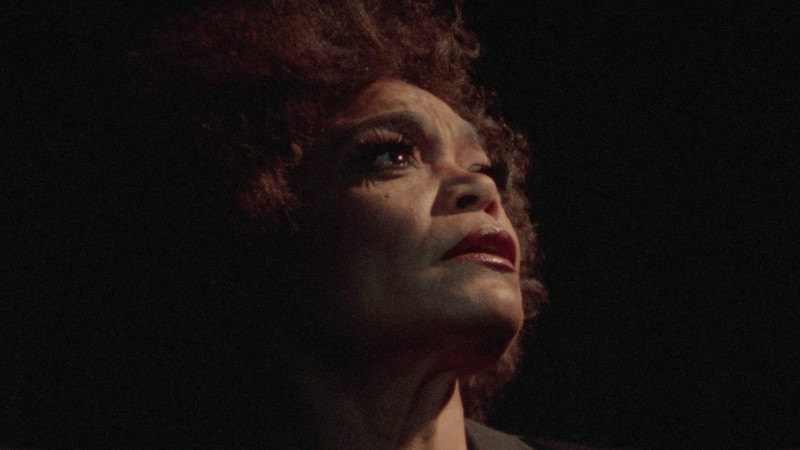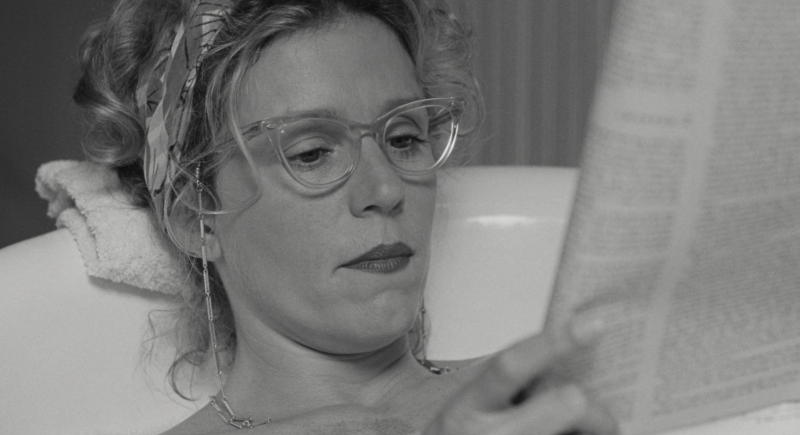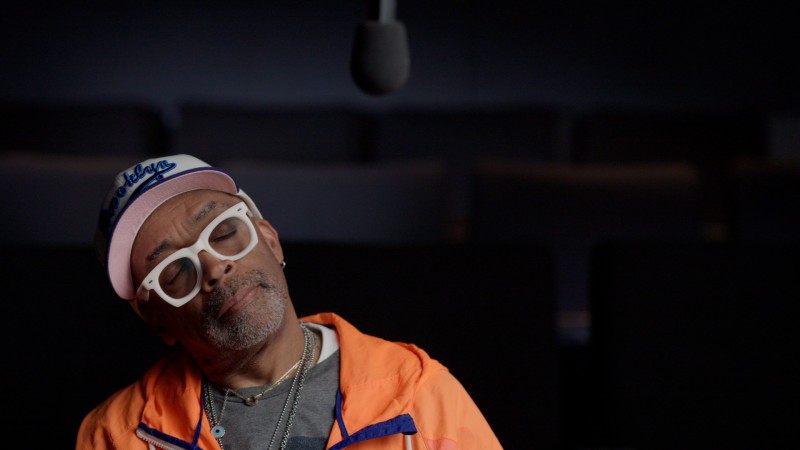Marianne Faithfull Brings on the Heartbreak in Made in U.S.A

Godard is, of course, a prince of scenes, a demiurge of disconnected autonomous moments that sometimes self-destruct or deny their own integrity as scenes or even negate the narrative integrity of other scenes. Just like life, you might say—shattery, dissolute, the past and future unconnected by anything more tensile than a thought—and so would the man, whom the clerks at Kim’s Video in New York used to just label on their shelves “GOD.” Aggregate a melange of moments and pieces, which is what he’s always done when he makes a film, and the resulting cataract acquires its own significance, becoming a tissue of modernity that is whole in its apparently reckless randomness.
One of the fifteen essential rockets the director launched in the sixties that made the decade his and his alone, Made in U.S.A (1966) was only festival-shown in its day before getting stalled and closeted by the producer’s messy rights trouble with the Donald Westlake novel it barely references. Riffing impishly on noir clichés, composing life as if it were a comic strip, fracturing an ersatz story into slivery mirror shards, lallygagging through dramatic confrontations, cutting in splats of audio and advertising and visual punctuation, tossing off movie-movie allusions, indulging in irrational jokes, lacerating Americanization and the crassness of modern culture—it’s all there, all stewed together into a feverish, mysterious brew that’s less a traditional masterpiece than an open-source exploration of the cinema-life interface.
Which, in Godardville, was simply more of what we knew to expect. But when we saw it in 2009, what we also finally got to see was the requiem of the Godard-Karina nexus, the sixth and last feature of modern cinema’s premier union, a romance and marriage that, you could say, happened on film or not at all. Every inch of the movie, deliberately or not, is saturated with sorrow, bitterness, and ambivalence. On the surface it’s all voguing nonsense, noir fun, and bristling politics, but underneath, we’re watching the art form’s most spellbinding love story burn out and smolder into a baffling vaccuum. Every close-up of Karina (who is lit flatly and often shot too close, as if in vengeance, to reveal her flaws) aches with woe, and almost all of the dialogue has second meanings. “Why tell me stories?” she answers in what could be Godard’s growing aesthetic philosophy boiled down to a kernel. “I just want the truth.”But the scene that leaps out is, characteristically, incongruous and odd, a musical set-piece that lives even outside the film’s jigsaw identity. Early on, Karina’s character, Paula, hangs out in a brasserie with her shady noirish pursuers, and as they all evade each others’ eyes, a strawberry-chiffon blonde in a back booth—Marianne Faithfull, essentially playing herself—wrangles briefly with a grumpy lover. “Say something at least,” she says, to which he replies, “I’m fed up,” and leaves. With only background traffic noise as accompaniment, Faithfull quietly launches into a private, amused, but still plaintive all-English a cappella version of the Rolling Stones’ “As Tears Go By.”
Another movie would have intuitively used the bar as a hub of plot intrigue, but instead the film’s ersatz genre elements sit stewing in neutral, and the movie suddenly rises like a breathy aria and croons a gentle dirge for what’s already lost. Faithfull sings, and sings, gazing mildly into the middle distance, and Godard cuts to Karina, Jean-Pierre Léaud, and László Szabó glancing uncomfortably around, the spaces around them growing almost inappropriately pregnant with feeling. The song may be Jagger and Richards’s masterpiece (Wong Kar-wai might second the vote), but you wouldn’t have known it until Faithfull burbles it almost under her breath, low enough for only us to hear it, as if we were sitting across from her, the yearning melody and plainly desolate lyrics sailing out of the movie like a secret message, a forlorn radio signal from the filmmaker to the world.
Then, after several minutes of heaven, Karina interrupts the song on the soundtrack, with an uncontextualized confessional that clearly seems to be Godard trying to understand Karina trying to understand him: “My silence has the same effect on him as my words . . . My leaving disturbs him as much as my presence . . .” And we never return to that blue booth, or the aural caresses of Faithfull’s daydreamy mini-movie, lost in its own unexplained reveries.
It’s the saddest scene in Godard’s oeuvre, and as precious and troubling as a real memory. Given the context of this film, Godard’s descent (if that’s not an unfair word to use) into ironic political screed and semi-anonymity with the Dziga Vertov Group wasn’t merely an ideological transformation but an escape from heartbreak. “As Tears Go By,” then, and Faithfull’s velvety vibrato, and the suspension of movieness she and the song inhabit, are the filmmaker’s final adieu, his farewell salute to movies (one of several in his long life) and the love they brought him.




